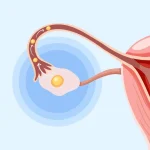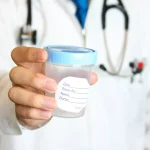When Should You Go to a Fertility Clinic?
Wondering when to go to a fertility clinic? It’s a thoughtful question, and timing can make all the difference. For some, the decision comes after months of trying without success. For others, it’s prompted by medical history, irregular cycles, or just a gut feeling that something isn’t right.
Fertility challenges can be emotional, stressful, and sometimes confusing. Many couples assume they need to wait years before seeking help, but in reality, fertility specialists recommend getting support earlier than most people think. The right timing not only saves valuable time but also improves your chances of success.
In this article, we’ll look at the signs, timelines, and circumstances that tell you it may be time to consult a fertility clinic and what to expect when you do.
Timing Matters: Age & Duration of Trying

One of the biggest factors influencing when to seek fertility help is age. Both male and female fertility decline over time, but for women, the window is especially critical.
- If you’re under 35: Experts recommend trying to conceive naturally for 12 months before seeing a fertility specialist.
- If you’re 35 or older: Seek help after 6 months of trying without success, since fertility declines more sharply in this age group.
- If you’re over 40: Consider seeking an evaluation immediately, as age-related decline becomes more significant.
These guidelines are designed to give couples enough time to try naturally while ensuring that age-related factors don’t delay treatment.
At What Point Should I Worry About Infertility?
It’s common to worry when conception doesn’t happen quickly, but infertility has a specific definition: not conceiving after 12 months of unprotected sex (if under 35) or 6 months (if over 35).
Here are some red flags that may signal it’s time to seek help sooner:
- Irregular or absent periods – which may mean you’re not ovulating.
- Painful periods or pelvic pain – could indicate endometriosis or fibroids.
- History of miscarriage – more than one miscarriage is a sign to see a specialist.
- Male factors – low sperm count, testicular injury, or erectile difficulties.
- Medical history – cancer treatment, surgeries, or hormonal conditions that affect fertility.
Worrying too soon may add unnecessary stress, but ignoring these signs can delay care. The best approach? Use the timelines as a guide, but trust your instincts. If something feels off, it’s okay to seek answers early.
Other Key Signals to Seek Help Sooner
In addition to age and time, certain conditions should fast-track your decision to visit a clinic:
- Irregular or absent menstrual cycles – without ovulation, pregnancy isn’t possible.
- Known reproductive conditions – PCOS, endometriosis, blocked tubes, fibroids, or scarring.
- Recurrent miscarriages – two or more pregnancy losses suggest an underlying issue.
- Male infertility signs – low sperm count, poor motility, or abnormal morphology.
- Chronic health issues – diabetes, thyroid disease, or autoimmune disorders that can interfere with fertility.
- Cancer history – chemotherapy and radiation can affect both eggs and sperm, making early intervention crucial.
- Desire for fertility preservation – if you’re delaying parenthood, egg or sperm freezing can help protect future options.
Seeking help early doesn’t mean rushing into treatment; it means getting the right information to make informed decisions.
Age and Fertility: A Natural Timeline to Know
Fertility is closely tied to age, especially for women. Here’s a quick overview:
- 20s: Fertility is at its peak, with the highest chance of conception per cycle.
- Early 30s: Still relatively high fertility, but a gradual decline begins.
- Mid to late 30s: Fertility drops more significantly; risks of miscarriage and chromosomal abnormalities increase.
- 40s: Natural conception becomes less likely, and fertility treatments may be recommended sooner.
For men, fertility declines more slowly but still plays a role. Sperm quality and motility can decrease with age, and advanced paternal age has been linked to higher risks of certain conditions in children.
Knowing this natural timeline helps individuals and couples make proactive decisions, whether that’s seeking early evaluation or exploring options like egg or sperm freezing.
No Time Frame? Don’t Wait to Ask Questions
You don’t have to meet the “6 months or 12 months” mark to seek help. If you have questions about your reproductive health, visiting a fertility clinic early can be beneficial. Some reasons people book consultations even before actively trying include:
- Planning ahead and wanting a fertility checkup.
- Having a family history of infertility.
- Wanting to freeze eggs or sperm for future use.
- Just needing reassurance before starting the process of trying.
Proactive visits give you a head start. Even if no issues are found, you’ll leave with peace of mind, and if something is discovered, you’ll have time to act on it.
What to Expect at the Clinic Visit
If you decide it’s time to see a fertility doctor, here’s what the first appointment usually looks like:
- Medical history review – cycles, pregnancies, miscarriages, surgeries, lifestyle, and family history.
- Initial testing – blood tests for hormone levels, semen analysis, and possibly an ultrasound.
- Discussion of possible causes – the doctor may already suggest areas of concern (like ovulation, sperm quality, or uterine health).
- Next steps – you’ll be guided on whether to try medication, IUI, IVF, or additional testing.
The first appointment isn’t just about medical evaluations; it’s also a chance for you to ask questions, get reassurance, and feel supported in what can be an emotional journey.
Final Thoughts

Deciding when to go to a fertility clinic is a personal journey influenced by age, time trying, medical history, and intuition. Whether you’re under 35 and still within the 12-month guideline, over 35 and past 6 months, or dealing with known reproductive issues, the most important step is not waiting too long. The earlier you understand your fertility health, the more options you have.
At The Bridge Clinic, you’ll find compassionate experts ready to guide you. With advanced services including IVF, IUI, and PGT, the clinic offers cutting-edge solutions tailored to your unique needs, all in a supportive environment where you’re not alone.
Book your appointment today with The Bridge Clinic if you are in Nigeria, looking to take the next step toward clarity, hope, and the family you’ve been dreaming of.
Follow us on our social media channels below:
Explore our related articles below:








